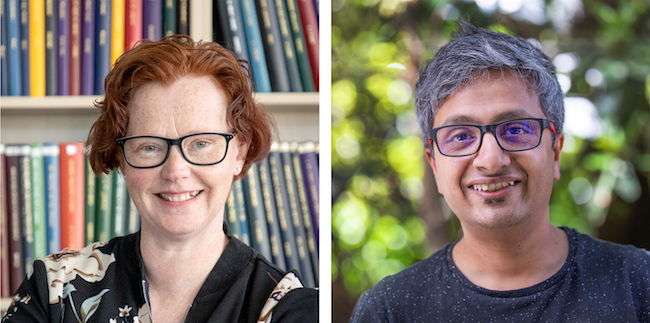Tuesday 30 November 2021 10:02am

Four research projects in the Biochemistry Department received prestigious Marsden funding this year. We introduce the projects in a series of brief reports.
Associate Professor Stephanie Hughes and Research Fellow Dr Indranil Basak spend a decent chunk of their time trying to understand how brain diseases work. A lot of their focus has been on a part of the cell called the lysosome.
Lysosomes recycle waste. Cells constantly wear out their molecules, and instead of chucking them out, the broken or no-longer-needed molecules are sent to the lysosomes, little 'bubbles' inside the cells filled with enzymes and acid. Lysosomes break the molecules down into their constituent parts, which the cell can then reuse to make new molecules.
When lysosomes stop working properly, waste builds up in their cells. The waste can pile up so much that it eventually stops the cells from working properly, and if these cells are brain cells - neurons - this leads to brain diseases.
There are many possible things that can jam up lysosomes and stop them from working, and research in the area has mostly focused on problems with DNA or proteins. Steph and Indranil have recently found that another sort of molecule could be involved – a type of RNA called 'long noncoding RNA' (lncRNA).
They found a group of seven lncRNAs that were associated with defective lysosomes, and suspect that they might help to control how lysosomes work. They are understandably very keen to explore this further; the Marsden award of $960,000 over three years will go some way towards this.
The research team can already grow neurons in a dish within the lab. They plan to control the levels of the seven lncRNAs of interest inside these cultured neurons, and see what this does to the lysosomes. Since lncRNAs are easily 'druggable' targets, this research should pave the way to develop RNA therapeutics for brain diseases, such as the inherited disorder Batten disease.
It just happens that an expert in lncNRAs has her lab just down the corridor. Dr Sarah Diermeier has recently started a company called Amaroq Therapeutics, a Dunedin-based biotechnology company focused on developing a new class of therapeutics that target lncRNA in cancer. Sarah will support the Marsden project as an associate investigator.
Congratulations to Steph, Indranil and their team on the award - Ka mau te wehi!
Find out more about Steph, Indranil and Sarah's research here: